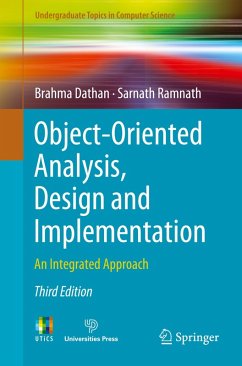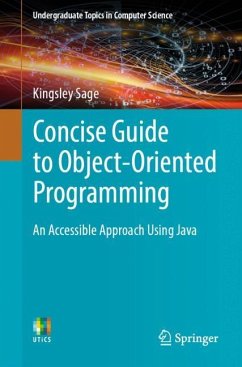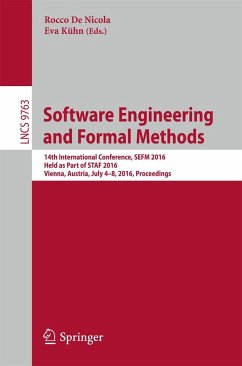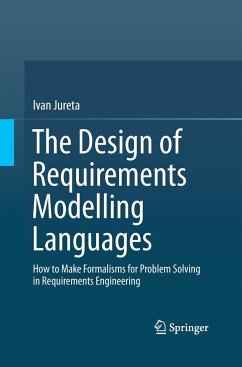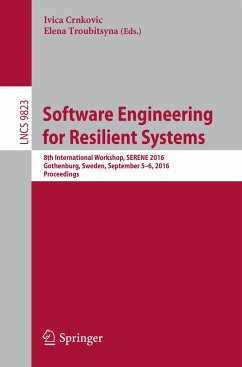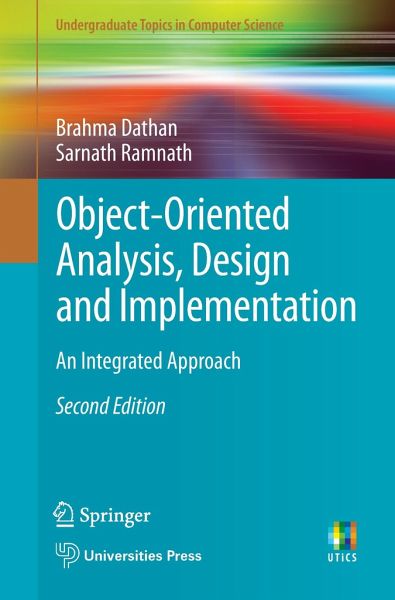
Object-Oriented Analysis, Design and Implementation
An Integrated Approach

PAYBACK Punkte
19 °P sammeln!
The second edition of this textbook includes revisions based on the feedback on the first edition. In a new chapter the authors provide a concise introduction to the remainder of UML diagrams, adopting the same holistic approach as the first edition.Using a case-study-based approach for providing a comprehensive introduction to the principles of object-oriented design, it includes:A sound footing on object-oriented concepts such as classes, objects, interfaces, inheritance, polymorphism, dynamic linking, etc.A good introduction to the stage of requirements analysisUse of UML to document user r...
The second edition of this textbook includes revisions based on the feedback on the first edition. In a new chapter the authors provide a concise introduction to the remainder of UML diagrams, adopting the same holistic approach as the first edition.
Using a case-study-based approach for providing a comprehensive introduction to the principles of object-oriented design, it includes:
A sound footing on object-oriented concepts such as classes, objects, interfaces, inheritance, polymorphism, dynamic linking, etc.A good introduction to the stage of requirements analysisUse of UML to document user requirements and designAn extensive treatment of the design processCoverage of implementation issuesAppropriate use of design and architectural patternsIntroduction to the art and craft of refactoringPointers to resources that further the reader's knowledge
The focus of the book is on implementation aspects, without which the learning is incomplete. This is achieved through the use of case studies for introducing the various concepts of analysis and design, ensuring that the theory is never separate from the implementation aspects.
All the main case studies used in this book have been implemented by the authors using Java. An appendix on Java provides a useful short tutorial on the language.
Using a case-study-based approach for providing a comprehensive introduction to the principles of object-oriented design, it includes:
A sound footing on object-oriented concepts such as classes, objects, interfaces, inheritance, polymorphism, dynamic linking, etc.A good introduction to the stage of requirements analysisUse of UML to document user requirements and designAn extensive treatment of the design processCoverage of implementation issuesAppropriate use of design and architectural patternsIntroduction to the art and craft of refactoringPointers to resources that further the reader's knowledge
The focus of the book is on implementation aspects, without which the learning is incomplete. This is achieved through the use of case studies for introducing the various concepts of analysis and design, ensuring that the theory is never separate from the implementation aspects.
All the main case studies used in this book have been implemented by the authors using Java. An appendix on Java provides a useful short tutorial on the language.



